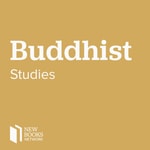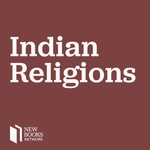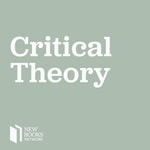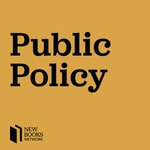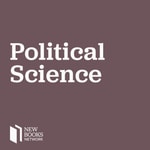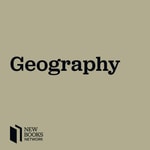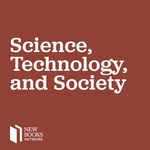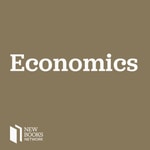New Books in Anthropology – Details, episodes & analysis
Podcast details
Technical and general information from the podcast's RSS feed.
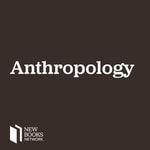
New Books in Anthropology
New Books Network
Frequency: 1 episode/1d. Total Eps: 1058

Recent rankings
Latest chart positions across Apple Podcasts and Spotify rankings.
Apple Podcasts
🇨🇦 Canada - socialSciences
29/07/2025#50🇬🇧 Great Britain - socialSciences
29/07/2025#51🇺🇸 USA - socialSciences
29/07/2025#38🇨🇦 Canada - socialSciences
28/07/2025#36🇬🇧 Great Britain - socialSciences
28/07/2025#75🇺🇸 USA - socialSciences
28/07/2025#91🇬🇧 Great Britain - socialSciences
27/07/2025#57🇬🇧 Great Britain - socialSciences
26/07/2025#76🇬🇧 Great Britain - socialSciences
25/07/2025#55🇺🇸 USA - socialSciences
25/07/2025#86
Spotify
No recent rankings available
Shared links between episodes and podcasts
Links found in episode descriptions and other podcasts that share them.
See all- https://www.sensorylogic.com
245 shares
- https://twitter.com/bucephalus424
16 shares
- https://twitter.com/AJuseyo.
10 shares
- https://twitter.com/AnnaZhelnina
8 shares
RSS feed quality and score
Technical evaluation of the podcast's RSS feed quality and structure.
See allScore global : 63%
Publication history
Monthly episode publishing history over the past years.
James P. Leary, “Folksongs of Another America: Field Recordings from the Upper Midwest, 1937–1946” (U Wisconsin Press, 2015)
Episode 13
dimanche 1 septembre 2024 • Duration 58:07
Tracy Pintchman, "Goddess Beyond Boundaries: Worshipping the Eternal Mother at a North American Hindu Temple" (Oxford UP, 2023)
Episode 350
jeudi 29 août 2024 • Duration 42:34
Matthew Archer, "Unsustainable: Measurement, Reporting, and the Limits of Corporate Sustainability" (NYU Press, 2024)
Episode 318
vendredi 16 août 2024 • Duration 42:18
John O'Brien, "States of Intoxication: The Place of Alcohol in Civilisation" (Routledge, 2018)
Episode 4
lundi 29 avril 2024 • Duration 48:20
Ross Perlin, "Language City: The Fight to Preserve Endangered Mother Tongues" (Atlantic Monthly Press, 2024)
Episode 120
samedi 27 avril 2024 • Duration 01:04:03
Steven C. Beda, "Strong Winds and Widow Makers: Workers, Nature, and Environmental Conflict in Pacific Northwest Timber Country" (U Illinois Press, 2022)
Episode 158
vendredi 26 avril 2024 • Duration 01:04:08
Philipp Demgenski, "Seeking a Future for the Past: Space, Power, and Heritage in a Chinese City" (U Michigan Press, 2024)
Episode 298
lundi 22 avril 2024 • Duration 01:20:29
Fumilayo Showers, "Migrants Who Care: West Africans Working and Building Lives in U.S. Health Care" (Rutgers UP, 2023)
Episode 217
dimanche 21 avril 2024 • Duration 01:02:57
Vaia Touna and Richard Newton, "Fieldnotes in the Critical Study of Religion: Revisiting Classical Theorists" (Bloomsbury, 2023)
Episode 225
dimanche 21 avril 2024 • Duration 56:04
Héctor Beltrán, "Code Work: Hacking Across the US/México Techno-Borderlands" (Princeton UP, 2023)
Episode 296
dimanche 21 avril 2024 • Duration 29:42
